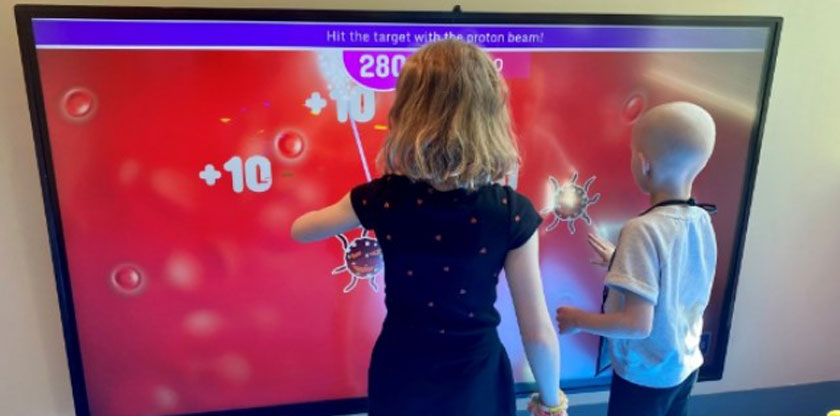
UF Research Advances Care for Children with Low‑Grade Gliomas
The UF Health Proton Therapy Institute has extensive experience in treating gliomas in children and is dedicated to reporting patient outcomes through clinical trials. These studies provide important information about a disease site where limited clinical outcome data are available and there exists controversy in management.
“Radiotherapy is our most effective tool in curing low-grade gliomas in the brain and spinal cord that cannot be removed through surgery. Yet today, many children are instead treated with chemotherapy due to the toxicity associated with traditional radiotherapy in young patients. One of our research goals has been to establish whether proton therapy can decrease or eliminate these radiation side effects. This would allow newly diagnosed children to be treated with curative radiation and avoid chemotherapy entirely,” said Daniel J. Indelicato, MD.
In 2019, the Institute published five-year results following treatment of 174 children with proton therapy for low-grade gliomas.1 The study is the largest single-institution experience of its kind reporting actual patient outcomes. The researchers assessed clinical outcomes and toxicity. They concluded that compared with reports in children treated with conventional photon therapy, proton therapy reduces the radiation dose to developing brain tissue, diminishing acute toxicities without compromising disease control.
In December 2024, the Institute published the long-term results of children treated with proton therapy for low-grade glioma involving the spinal cord.2 This study is the first published series of its kind and is a benchmark in establishing standard treatment guidelines where none exist today because of the rarity of the disease. The researchers concluded that proton therapy offers long-term disease control with minimal toxicity, especially for patients who had their cancer come back after multiple prior treatment courses. The evidence suggests that proton therapy should be considered among initial treatment options by clinicians for children with nonmetastatic, unresectable low‑grade glioma of the spinal cord.
“The success of this study is a testament to the Institute’s long-standing excellence in pediatric radiation oncology and commitment to tracking patient outcomes over time. By studying rare cancers like spinal low‑grade glioma, we can provide evidence that helps inform treatment decisions where few guidelines exist. I am especially grateful for the outstanding mentorship and support from the UF Health Proton Therapy Institute team, whose dedication to advancing pediatric cancer care made this work possible,” said Ryan Brisson, MD, lead author of the study.
1 Indelicato DJ, Rotondo RL, Uezono H, Sandler ES, Aldana PR, Ranalli NJ, Beier AD, Morris CG, Bradley JA. Outcomes Following Proton Therapy for Pediatric Low-Grade Glioma. Int J Radiat Oncol Biol Phys. 2019 May 1;104(1):149-156. doi: 10.1016/j.ijrobp.2019.01.078. Epub 2019 Jan 23. PMID: 30684665. https://pubmed.ncbi.nlm.nih.gov/30684665/
2 Brisson RJ, Indelicato DJ, Bradley JÁ, Aldana PR, Klawinski D, Morris CG, Mailhot Vega RB. Long-Term Outcomes Following Proton Therapy for Pediatric Spinal Low-Grade Glioma. Pediatr Blood Cancer. 2024 Dec; 71(12):e31341. doi:10.1002/pbc.31341. Epub 2024 Sep 25. https://pubmed.ncbi.nlm.nih.gov/39323035/
